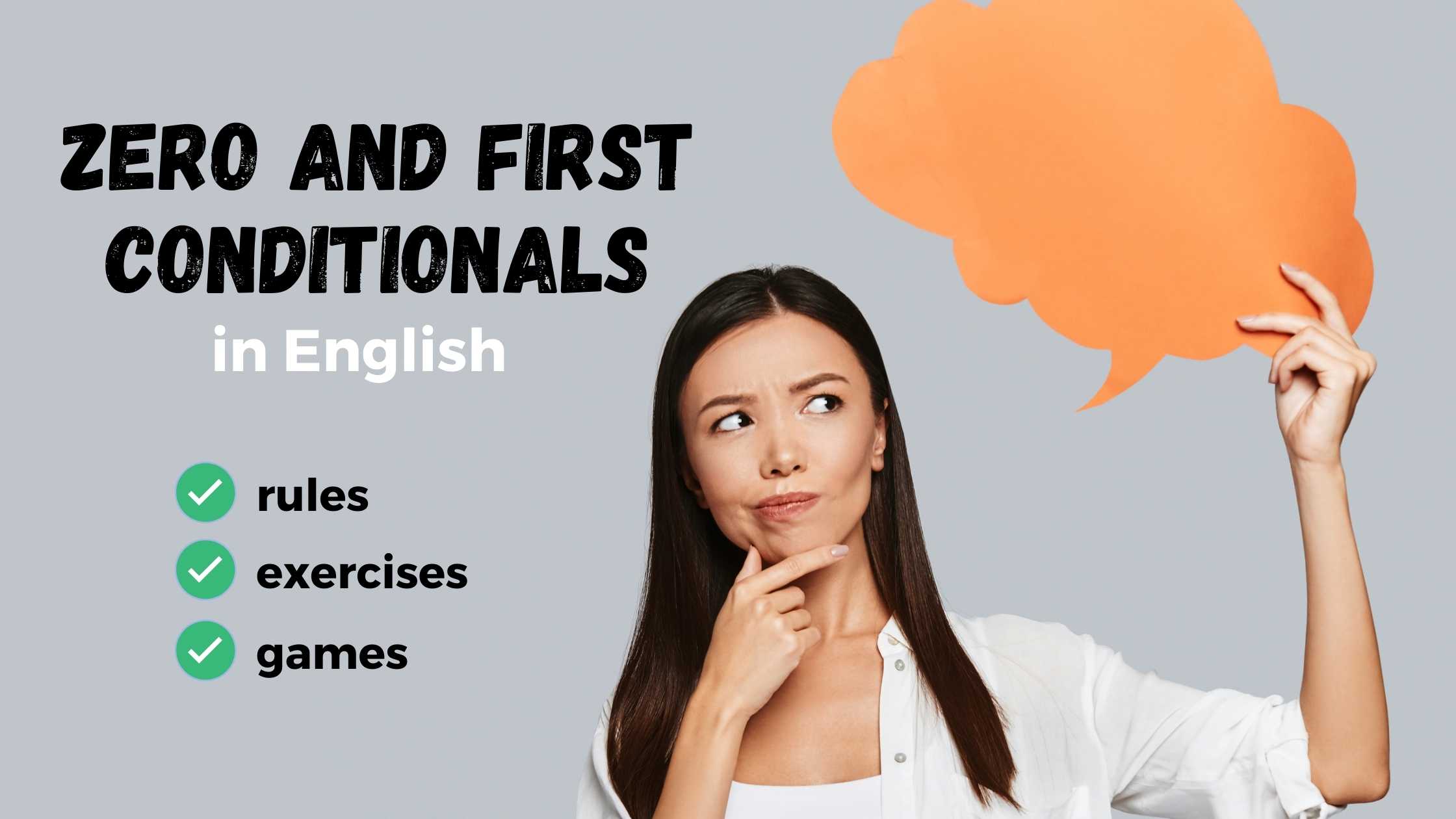Zero and First Conditionals in English
Chances are you have already heard of the word if, right? We use this word to talk about things that depend on something else to happen. We need to have a condition for it to happen, so that’s why we call the grammar tense that uses if, the conditional tenses. This post explores two types, the zero and first conditionals in English. There are two more, but it is best to learn these first. I promise that if you keep reading this, you will learn all you need to know about the zero and first conditionals. Let’s start with the rules for zero and first conditionals in English.
Zero Conditional: To talk about results that always happen
What happens to water if you heat it? It boils. And what happens if you cool water? It freezes. With that in mind, we can say that: If you heat water, it boils. Water freezes if it cools.
These two examples are great to understand what we call the zero conditional. We use the zero conditional to talk about things that always happen as the result of some other action. That’s why some people also call it the factual or real condition, and that’s because we use it to talk about facts and truths. The examples we gave above about the water are facts. Let’s take a look at some examples of truths:
- If I sleep more, I feel more energized.
- If it rains, take an umbrella.

Sentence structure of the zero conditional tense
Now, you need to know how to write a zero conditional sentence. Not to worry though, because the structure we follow when using the zero conditional is actually pretty easy. However, there are two ways we can structure a sentence in the first conditional. Firstly, you can use the present simple form in both the condition and the result clauses. The other rule is that you can use the present simple and an imperative form to form the zero conditional tense.
Remember, an imperative form is when you use a verb without stating the subject. For example, take a seat or drink some water are both examples of the imperative form. It’s often used to give instructions.
If + present simple + comma (,) + present simple or imperative
- If I go to bed late, I wake up feeling tired. (present simple + present simple)
- If she cleans her desk, she is more productive. (present simple + present simple)
- If he makes the bed in the morning, he feels more organized. (present simple + present simple)
- If you cool water, it freezes. (present simple + imperative)

Present simple or imperative + if + present simple
- Water boils if you heat it. (present simple + present simple)
- Habits change if you shift your mindset. (present simple + present simple)
- Tell Laura to come to my office if you see her. (imperative + present simple)
- Call me if you have the time. (imperative + present simple)

First Conditional: To talk about situations that have a single consequence
This is the most common conditional tense and you have probably used it before. We use the first conditional to talk about something that will happen in the near future if we do something now. Here are a few examples:
- If you go to the party, I’ll go too.
- If you buy a new television, I will sell my old one.
It is very common to use the first conditional in English to make threats and promises. Take a look at these sentences:
- If you help me with my homework, I will wash the dishes for you.
- If you go to the movies without me, I will never talk to you again.

Rules of use for the first conditional
Now, let’s take a look at the sentence structure we use with the first conditional. Remember, it’s possible to reverse the order of this sentence. You don’t always have to start your conditional with the if clause (condition). For instance, you can start your sentence with the result clause.
If + present tense + comma (,) + future tense
Remember, a future tense uses will or going to + verb to make predictions, offers, or promises. You can read more about the future and practice the different tenses on this page.
- If you lend me your car, I’ll fill up the gas tank for you.
- If I go to New York City, I’m going to visit Times Square.
Future tense + if + present tense
- I’m going to buy a new sofa if I get a raise.
- I’m going to get a dog if I move to a bigger house.
- They’re going to have a pool party if it stops raining.

Let’s practice: exercises
Now, if you’d like to learn more about the first conditional, you can read this article about the grammar and different ways to use it. Or, you can do some exercises and check your knowledge.
We use the zero and first conditionals in English quite often in our daily lives, so it’s important that you know the rules for how to form both of these types of sentences. We hope this blog post about them helps you use them better. I am sure that if you practice, you will master this topic! Happy studying!

